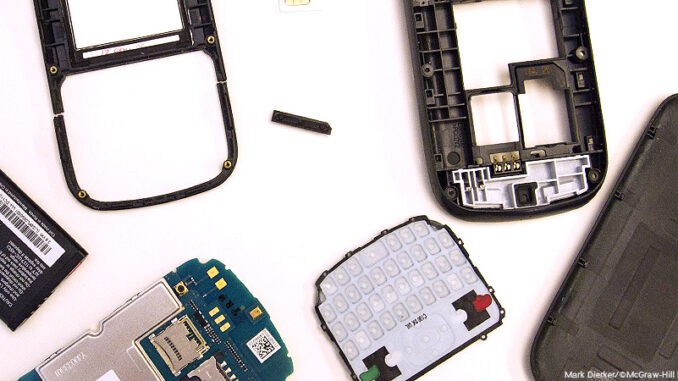
Apple’s Tax Woes in Ireland

Last month, the European Union ruled that Apple owes $14.5 billion in back taxes to Ireland. More specifically, the EU ruled that Ireland is responsible for ordering the technology giant to pay its back taxes. Modeling itself after Bermuda (a well-known tax haven for corporations), Ireland’s corporate tax rate is 12.5 percent (in the United States, by contrast, the corporate tax rate is 35 percent). Going back 25 years, the Irish government is accused of allowing Apple to pay less than the 12.5 percent, allowing the tech company to “funnel profit from two Irish subsidiaries to a ‘head office’ with no employees or activities.” In response, Apple CEO Tim Cook said that the ruling had “no basis in fact of law.” Ireland has announced that it will appeal the ruling. Ireland has announced that it will appeal the case through the EU court system.
Cracking down on the practice of large corporations paying minimal taxes has become a priority for the EU ever since Margrethe Vestager took over as competition commissioner (a position within the European Commission, the executive body of the EU). When asked by a reporter if she was sending a message to large corporations, Vestager said that she wanted companies of any size to know that Europe is a wonderful place to do business, but that comapnies must play by the rules and not to rely on unfair tax benefits. In response to the ruling, the United States Treasury Department has accused the EU of overstepping its power and is unfairly targeting profitable U.S. companies. Politicians have spoken out, saying that the EU is taking advantage of its recent economic crisis by engaging in a money grab.
Dig Deeper The EU also has open investigations into Amazon.com and McDonalds. Look into what experts and commentators are saying about these cases and how they compare to Apple.
Space X Rocket Explodes
At the beginning of the summer, btw brought you news of the thriving Space Coast along the Atlantic Ocean side of Florida. One of those private aerospace firms is Space Exploration Technologies Corp. (known as SpaceX), owned by PayPal and Telsa CEO Elon Musk. On September 1, the company was performing a “hot fire” (or static) test on its Falcon 9 rocket, in preparation for a launch scheduled for a few days later. During one of these tests, a rocket is secured to the launch pad and the nine engines are ignited; the purpose is to make sure everything works as it should. Instead, an explosion enveloped the launch pad in flames.
Reports suggest that the malfunction which caused the accident occurred before the engines were ignited. While the exact cause has not been determined, some believe it could be the propellants–kerosene and liquid oxygen. This rocket was carrying the Amos-6 satellite intended to provide high-speed Internet access to remote villages in Africa. The explosion is not just a major setback for SpaceX, but for all of the parties involved in the initiative, including Facebook’s Internet.org, its free, stripped-down service for less-developed countries
Dig Deeper Despite this incident, industry experts predict that there will be few impacts on the burgeoning launch and small satellite industries. Do some research and provide at least two examples that support this.
Samsung Recalls Phones
Last summer, btw brought you news of recalls, how they work and the effect of recalls on both business and consumers. Samsung, the world’s largest maker of smartphones, is the most recent company to announce a major recall, on its Galaxy Note 7 model. The problem lies with the lithium-ion battery. Customers who already have phones will receive a replacement before the fixed models become available to the general public. Samsung owns many of the facilities that produce the components of its products. This is good because this can help the company fix the problems more quickly. However, that fact can create a public relations problem if the public grows weary of its product because of dangerous flaws.
Samsung is hardly the first company to be plagued by issues with the lithium-ion battery. This type of battery became popular because they are lightweight and don’t take up as much space as traditional batteries. However, they also contain a highly flammable chemical that can become unstable if punctured or overheated. This can lead to explosion and/or fire.
Related:
If you own a Galaxy Note 7 phone, click here to learn more about the recall process.
